Chinese history books record that the men who served in the palace before the Qin Dynasty (before 221 BC) and the Western Han Dynasty (202 BC - 8 AD) were not necessarily eunuchs. From the Eastern Han Dynasty (25-220) onwards, they were forced to have their genitals removed and become eunuchs to avoid having relationships with women in the palace.
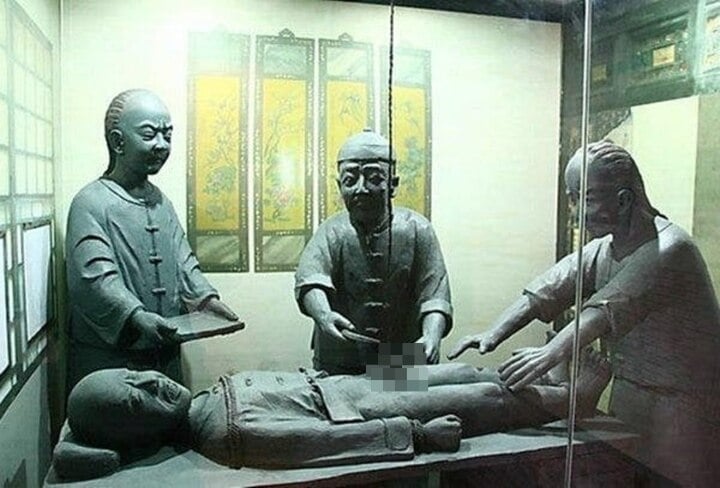
Statue depicting the eunuch's castration process. (Photo: Sohu)
Eunuchs come from a variety of backgrounds, including those who volunteered, were punished, paid tribute, or even sold. After undergoing a selection process, they were forced to undergo castration before officially becoming eunuchs.
In ancient times, there were two places that specialized in male castration surgery: the "Internal Affairs Office" within the palace and the "Specialized Body Castration Facility" outside. During the Qing Dynasty, "Kidney and Bone Surgery" was the name given to the department within the palace that specialized in performing this procedure.
Tinh su is the name of those who practice body purification. This is a lucrative profession because the process is extremely painful and has a high mortality rate, requiring advanced techniques.
The main knife used to cut off the genitals is made of gold and copper alloy to avoid infection, and must be heated over fire to sterilize before use. In addition, the practitioner also uses a number of other types of knives.
The process of purification requires careful selection of weather because ancient medicine was still quite poor and had not yet found an effective antiseptic. Therefore, people often performed this process in late spring and early summer, when the climate was mild and there were almost no flies or mosquitoes.
Before the ritual begins, the person who is to be castrated and the monk must sign a pledge in the presence of witnesses. The pledge must state that the person who is to be castrated is completely voluntary, regardless of any risks or death after the ritual. The person who is to be castrated must also pay a certain fee. Most of these people come from poor families and must pay it back gradually each year after entering the palace.
A few days before the surgery, the practitioner is not allowed to eat or drink to avoid infection from defecating. While on the operating table, the practitioner does not anesthetize the patient but only cleans their genitals with hot chili soup.
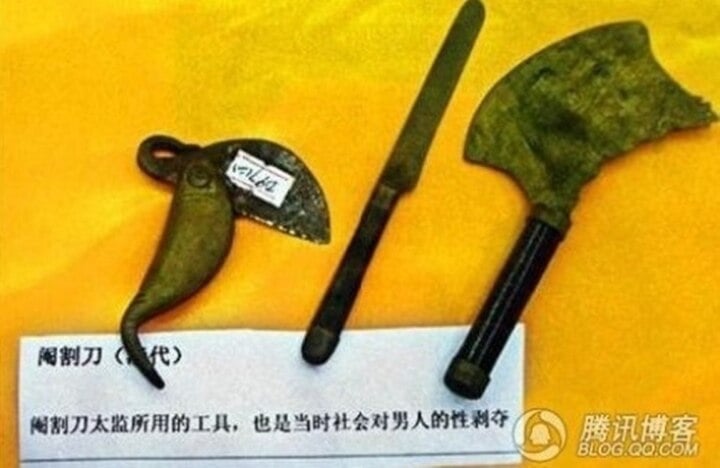
Body purification tools. (Photo: QQ)
According to the book "Chinese Royal Life", before castrating a child to become a eunuch, the eunuch would take a peeled chicken egg and put it in the child's mouth, blocking the child's throat so that it could not make a sound before starting the act.
Because the genitals still have the ability to develop or grow longer, eunuchs are examined once a year after entering the palace. This process is called purification. Many eunuchs have a foul odor on their bodies because they have not been purified properly, causing urine to leak out.
After being castrated, the Adam's apple will not be exposed, the voice will be clear, and the gestures will be like a woman's. In addition to the obvious physiological changes, they will also gradually change psychologically. They will lose their sexual instincts, feel like their life is over, and no longer have any real meaning.
Therefore, they often live with a negative attitude, even actively giving up their plans, ideals and motivations. Most eunuchs in ancient times lived such a quiet life. However, once they had a lot of money or held some power in their hands, they would no longer live quietly but become greedy, cruel and ruthless.
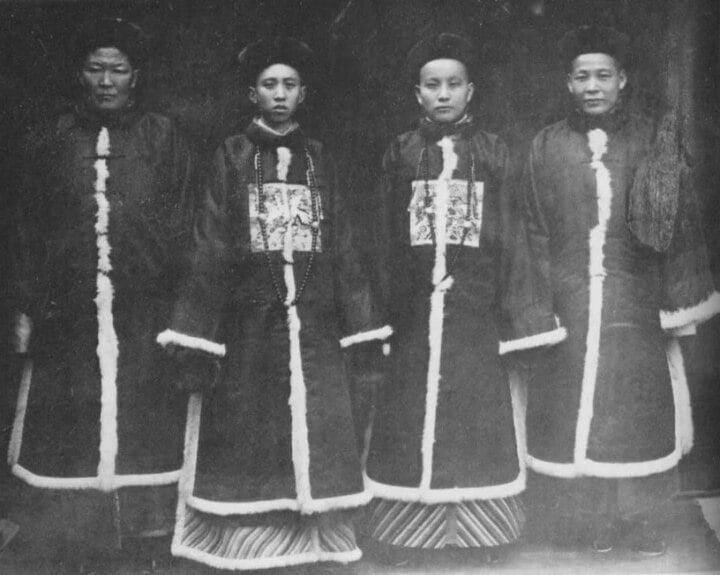
Eunuchs at the end of the Qing Dynasty. (Photo: Sohu)
Many people find it difficult to understand the stories of eunuchs marrying wives. However, Japanese scholar Terao Yoshio studied this issue and explained it with the "psychological theory of escaping loneliness" in his work "The Story of a Eunuch".
He believes that eunuchs marry to escape loneliness. They always have to endure the contemptuous gaze of others, so it is understandable that they seek warmth from their wives.
The "wives" of eunuchs were mostly palace maids. Life in the palace was isolated from the outside world , so only palace maids could marry eunuchs.
HAI YEN (Source: Morning Post)
Useful
Emotion
Creative
Unique
Wrath
Source



![[Photo] General Secretary To Lam receives US Ambassador to Vietnam Marc Knapper](https://vphoto.vietnam.vn/thumb/1200x675/vietnam/resource/IMAGE/2025/9/29/c8fd0761aa184da7814aee57d87c49b3)
![[Photo] General Secretary To Lam attends the ceremony to celebrate the 80th anniversary of the post and telecommunications sector and the 66th anniversary of the science and technology sector.](https://vphoto.vietnam.vn/thumb/1200x675/vietnam/resource/IMAGE/2025/9/29/8e86b39b8fe44121a2b14a031f4cef46)
![[Photo] National Assembly Chairman Tran Thanh Man chairs the 8th Conference of full-time National Assembly deputies](https://vphoto.vietnam.vn/thumb/1200x675/vietnam/resource/IMAGE/2025/9/29/2c21459bc38d44ffaacd679ab9a0477c)
![[Photo] Many streets in Hanoi were flooded due to the effects of storm Bualoi](https://vphoto.vietnam.vn/thumb/1200x675/vietnam/resource/IMAGE/2025/9/29/18b658aa0fa2495c927ade4bbe0096df)
![[Photo] General Secretary To Lam chairs the meeting of the Central Steering Committee on preventing and combating corruption, waste and negativity](https://vphoto.vietnam.vn/thumb/1200x675/vietnam/resource/IMAGE/2025/9/29/fb2a8712315d4213a16322588c57b975)













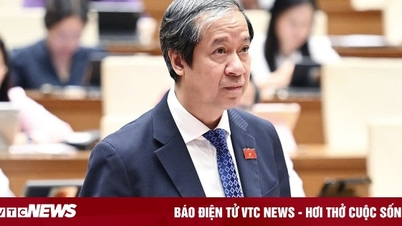
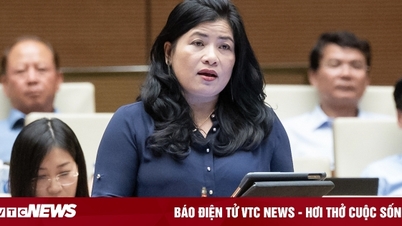
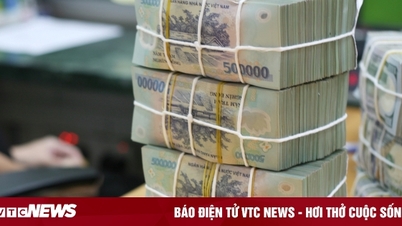

























































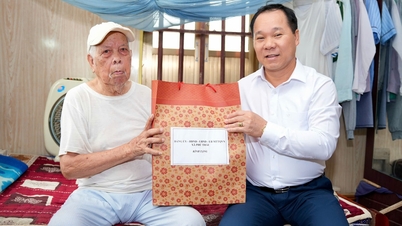














Comment (0)